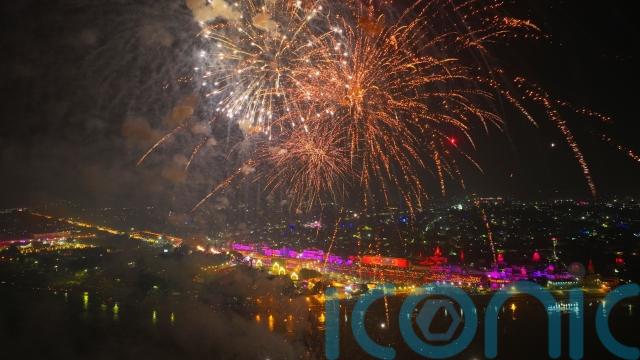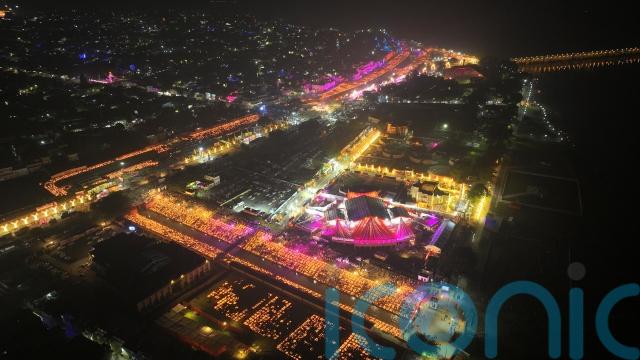
Millions of Indians have celebrated Diwali with a new Guinness World Record number of bright earthen oil lamps as concerns about air pollution soared.
Across the country, dazzling multi-coloured lights decked homes and streets as devotees celebrated the annual Hindu festival of light, symbolising the victory of light over darkness.
The spectacular and much-awaited massive lighting of the oil lamps took place at Saryu river in Ayodhya, Uttar Pradesh state, the birthplace of their most revered deity, the god Ram.
At dusk on Saturday, devotees lit more than 2.22 million lamps and kept them burning for 45 minutes as Hindu religious hymns filled the air along the banks of the river, setting a new world record. Last year, more than 1.5 million earthen lamps were lit.
After counting the lamps, Guinness World Records representatives presented a certificate to the state’s top elected official, Yogi Adityanath.

More than 24,000 volunteers, mostly students, helped prepare for the new record, said Pratibha Goyal, vice-chancellor of Dr Ram Manohar Lohia Avadh University in Ayodhya.
Diwali, a national holiday across India, is celebrated by socialising and exchanging gifts with family and friends. Many light earthen oil lamps or candles, and fireworks are set off as part of the celebrations. In the evening, a special prayer is dedicated to the Hindu goddess Lakshmi, who is believed to bring luck and prosperity.
Over the weekend, authorities ran extra trains to accommodate the huge numbers travelling to join family celebrations.
The festival came as worries about air quality in India rose. A “hazardous” 400-500 level was recorded on the air quality index last week, more than 10 times the global safety threshold, which can cause acute and chronic bronchitis and asthma attacks.
But on Saturday, unexpected rain and a strong wind improved the levels to 220, according to the government-run Central Pollution Control Board.

The air pollution level is expected to soar again after the celebrations end because of the fireworks used.
Last week, officials in New Delhi shut down primary schools and banned polluting vehicles and construction work in an attempt to reduce the worst haze and smog of the season, which has posed respiratory problems for people and enveloped monuments and high-rise buildings in and around India’s capital.
Authorities deployed water sprinklers and anti-smog guns to control the haze and many people used masks to escape the air pollution.
New Delhi tops the list almost every year among the many Indian cities with poor air quality, particularly in the winter, when the burning of crop residues in neighbouring states coincides with cooler temperatures that trap deadly smoke.
Some Indian states have banned the sale of fireworks and imposed other restrictions to stem the pollution. Authorities have also urged residents to light “green crackers” that emit less pollutants than normal firecrackers. But similar bans have often been disregarded in the past.
Subscribe or register today to discover more from DonegalLive.ie
Buy the e-paper of the Donegal Democrat, Donegal People's Press, Donegal Post and Inish Times here for instant access to Donegal's premier news titles.
Keep up with the latest news from Donegal with our daily newsletter featuring the most important stories of the day delivered to your inbox every evening at 5pm.